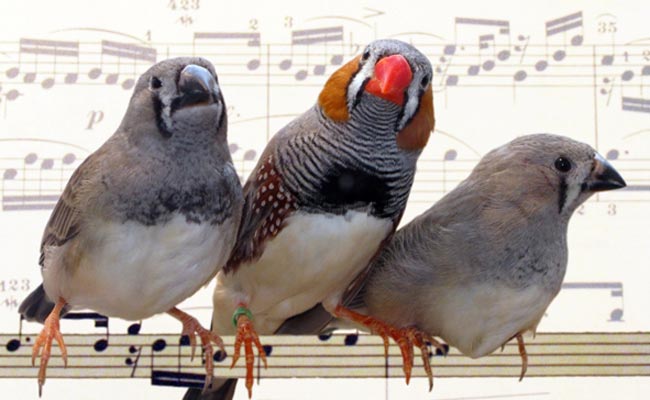Birds Babble Like Babies

Get the world’s most fascinating discoveries delivered straight to your inbox.
You are now subscribed
Your newsletter sign-up was successful
Want to add more newsletters?

Delivered Daily
Daily Newsletter
Sign up for the latest discoveries, groundbreaking research and fascinating breakthroughs that impact you and the wider world direct to your inbox.

Once a week
Life's Little Mysteries
Feed your curiosity with an exclusive mystery every week, solved with science and delivered direct to your inbox before it's seen anywhere else.

Once a week
How It Works
Sign up to our free science & technology newsletter for your weekly fix of fascinating articles, quick quizzes, amazing images, and more

Delivered daily
Space.com Newsletter
Breaking space news, the latest updates on rocket launches, skywatching events and more!

Once a month
Watch This Space
Sign up to our monthly entertainment newsletter to keep up with all our coverage of the latest sci-fi and space movies, tv shows, games and books.

Once a week
Night Sky This Week
Discover this week's must-see night sky events, moon phases, and stunning astrophotos. Sign up for our skywatching newsletter and explore the universe with us!
Join the club
Get full access to premium articles, exclusive features and a growing list of member rewards.
Baby birds are like baby humans on at least one score: they both babble. But as songbirds grow up, they make the switch from babbling to singing by flipping to a different brain circuit, new research finds, suggesting a new view of human infant behavior.
We should toss out the idea that babbling is an undeveloped adult behavior, said study leader Dmitriy Aronov of MIT. "Maybe we should think of these behaviors as being the presence of exploration … of creativity," he told LiveScience.
Some scientists have thought that a single brain pathway matures to produce song in birds. In the study detailed in the May 2 issue of the journal Science, however, male zebra finches were found to use one circuit for babbling as juveniles and another for singing as adults.
In terms of brain regions, babbling was not just undeveloped singing.
Male songbirds learn to sing by exploring their vocalizations. Human babies may be doing the same thing when they babble, said Ofer Tchernichovski, a neuroscientist who has studied bird song at City College of New York and was not associated with the study.
Aronov's team studied songbirds as a model to reveal the brains behind complex behaviors, such as singing, for which there are analogous human behaviors, such as speaking.
To understand the transition to singing in birds' brains, Aronov and his MIT colleagues, including fellow graduate student Aaron Andalman, studied male zebra finches, small birds native to Australia and Indonesia.
Get the world’s most fascinating discoveries delivered straight to your inbox.
The researchers turned off parts of the birds' brains using chemicals or surgery. When the part of the brain devoted to adult singing was knocked out, the baby birds kept babbling and never advanced to singing. This meant another circuit was responsible.
Interestingly, when the researchers did the same thing to adult birds — disabled the area for adult song — the full-grown birds babbled like babies. This violates the use-it-or-lose-it rule: Babbling circuitry was not lost as the finches reached adulthood. So, the finches may use both circuits, but one or the other dominates at different times in their lives, the researchers think.
When the finches learn their songs, their exploration or creativity is complete, said team member Michale Fee, "but we humans can always call upon our equivalent of [the birds' babbling center], the prefrontal cortex, to be innovative and learn new things."
- Video: Bird Radar
- Video: Extraordinary Birds
- Avian Ancestors: Dinosaurs that Learned to Fly
 Live Science Plus
Live Science Plus










